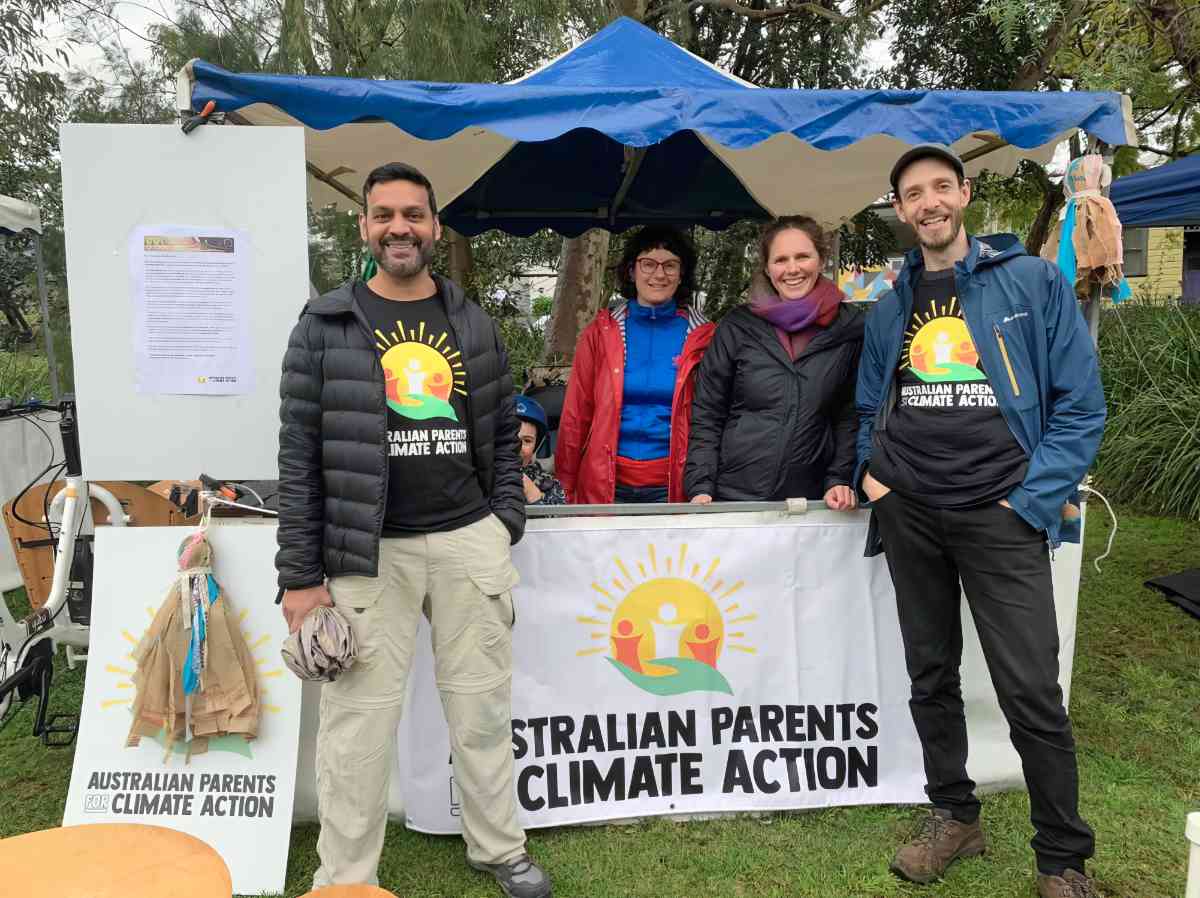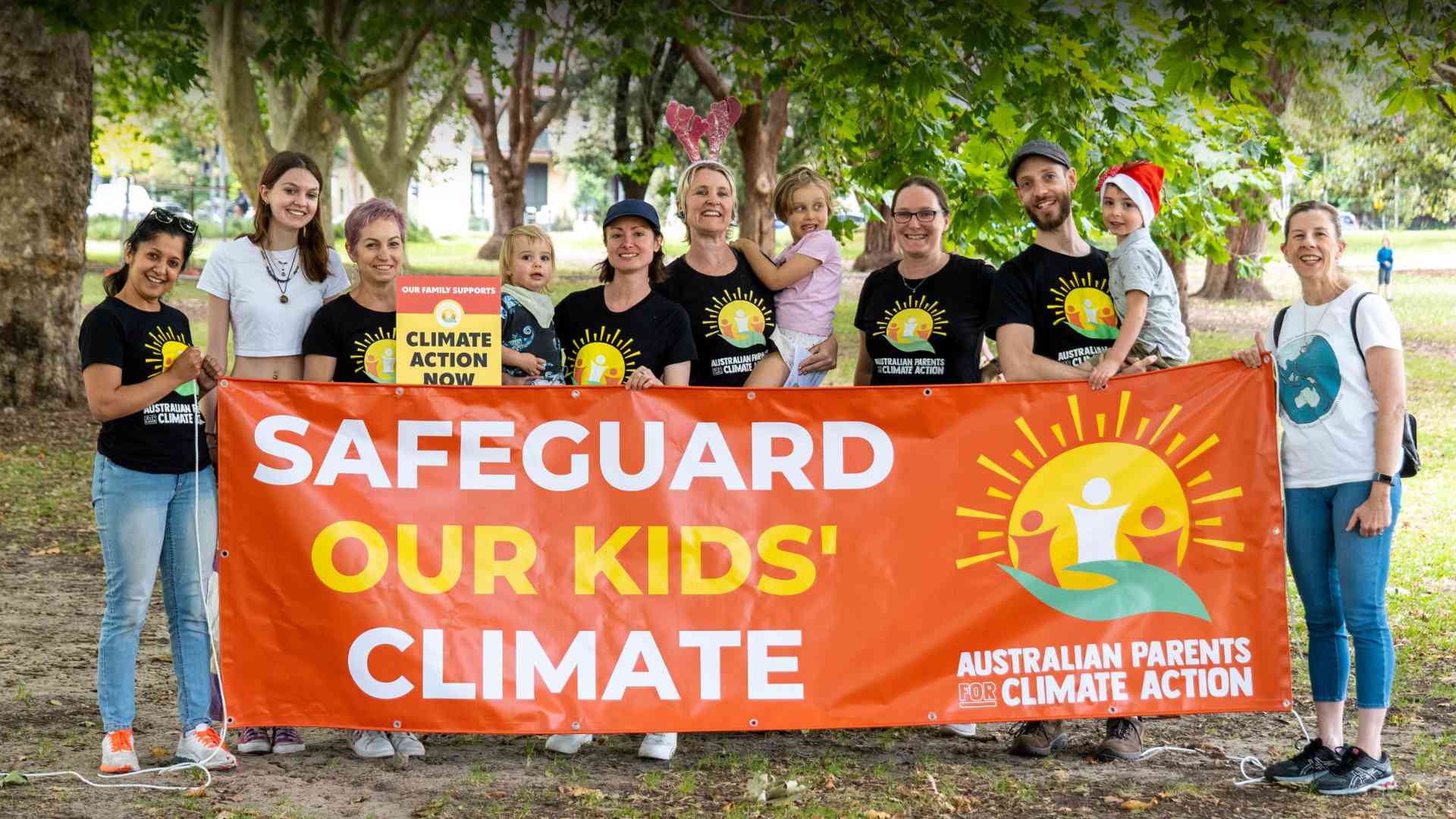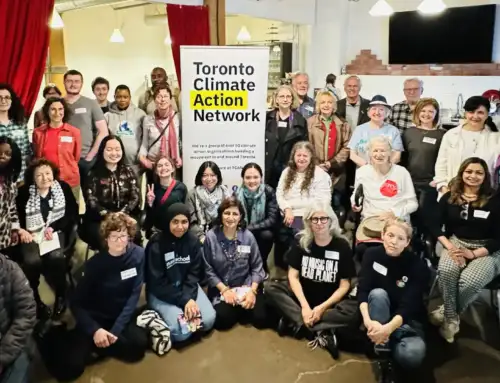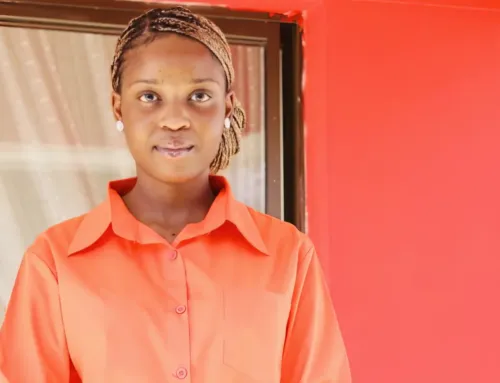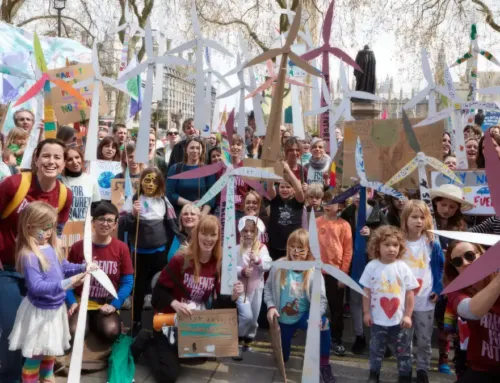STORIES
Nic Seton:
How well-organised parents are wielding their growing power to challenge greenwashing in Australia – and win climate campaigns
Nic Seton is CEO of Australia’s Parents for Climate, a growing national network of nearly 22,000 parents. Before joining the group in 2021, Nic spent 15 years in leadership roles with Greenpeace and World Wildlife Fund in the UK and Australia. Here, Nic shares his perspective on the enormous potential of a climate movement fueled by parental love, and about the lawsuit his group has launched against one of Australia’s largest energy companies. Nic lives in Sydney with his partner and two young children.
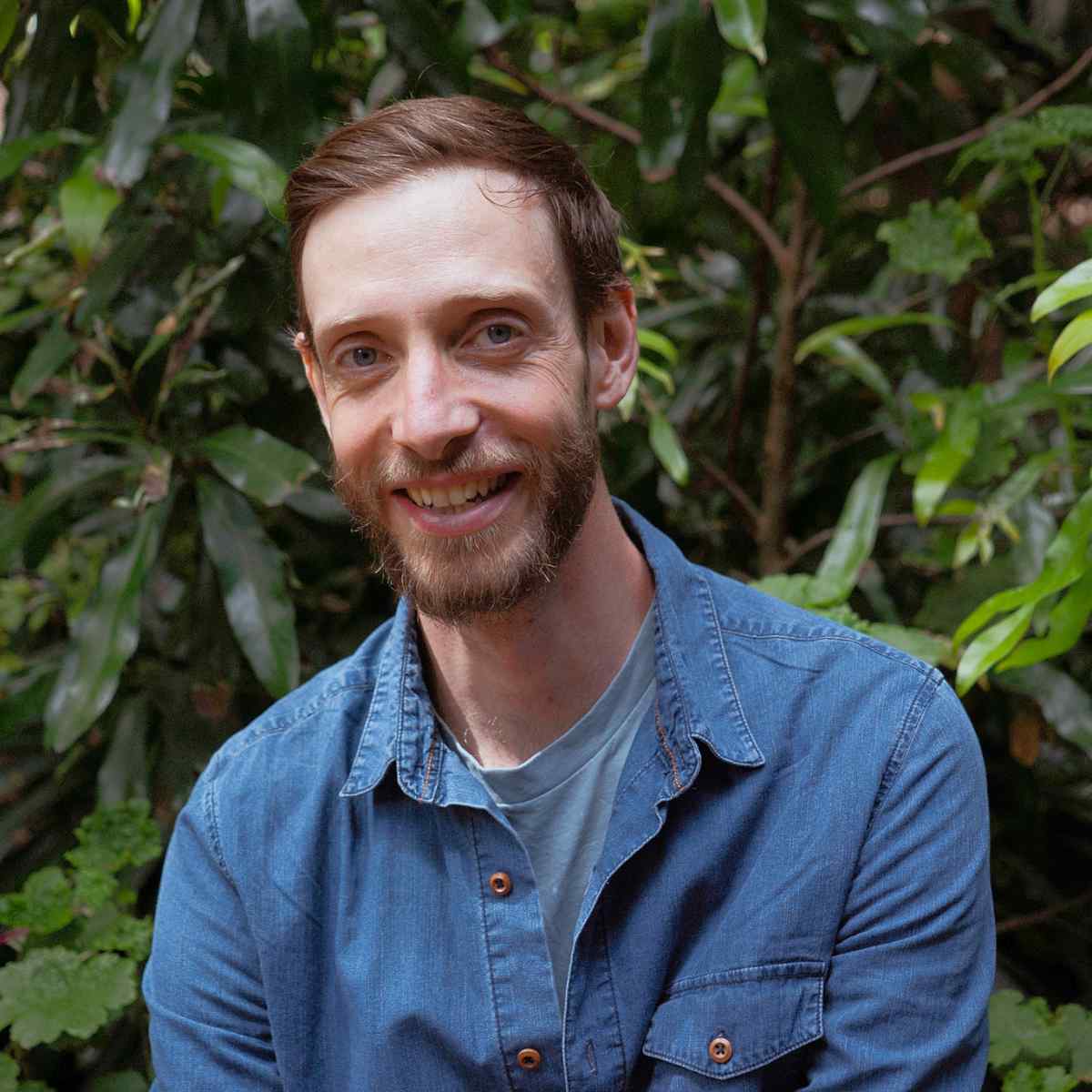
My little boy was three during Australia’s Black Summer, the horrific 2019 – 2020 bushfire season. We were shrouded in smoke for 90 days straight and didn’t know when it would end or where we could go. I felt powerless to protect him from the pollution– and my work was campaigning on climate change. He’d struggle to breathe and we repeatedly had to rush him to hospital for oxygen. I realised it wasn’t just the climate I was working on, but his climate. It was unjust. He had the least responsibility for this mess yet at that moment was among the most impacted.
Australia is one of the world’s biggest fossil fuel exporters. We also already experience severe climate impacts. We’re a wealthy country and our climate-impacted neighbors, New Zealand, Papua New Guinea, and Pacific Island nations look to us for regional leadership. Instead, Australia’s a fossil fuel pusher that has impeded solutions at recent global climate summits.
Parents for Climate’s strategy is to try to shift political conditions in Australia towards durable, long-term support for ambitious climate action this decade. Parents have unique power because there are lots of us—half of Australians are parents – and we’re incredibly networked. We’re also motivated by love. As we’ve seen repeatedly in the political and corporate spheres, no brand ever wants to be on the wrong side of parents. Parents have the unique capacity to shift enormous amounts of attention, engagement, and, ultimately, political power. We make sure that all political parties across the spectrum understand that parents will only get louder on this.
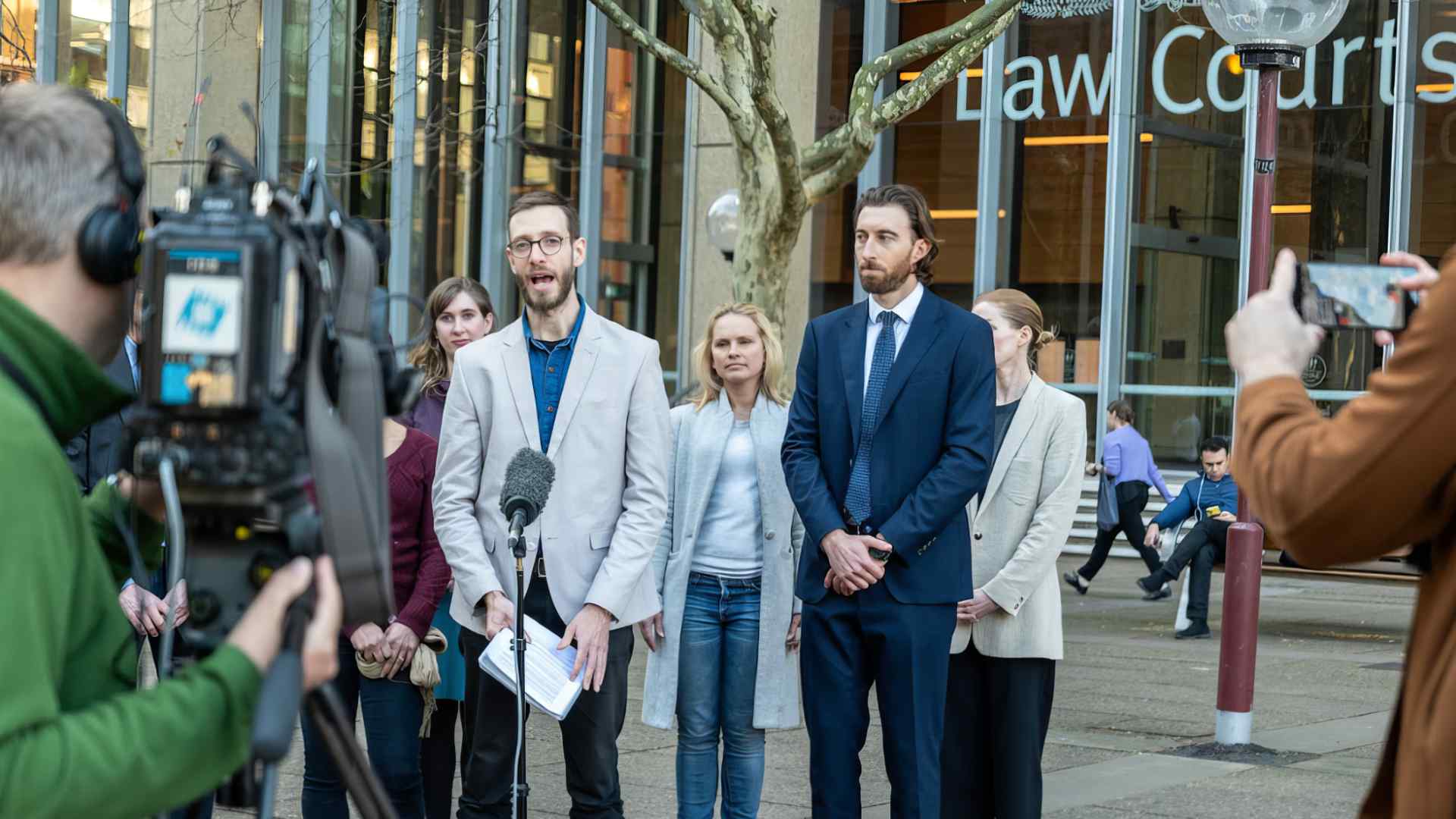
Our courageous, small organisation is now suing one of Australia’s largest polluters, EnergyAustralia, for greenwashing. Hundreds of companies in Australia promote climate and environmental claims that aren’t necessarily scientifically valid. One of EnergyAustralia’s marketing strategies, ‘Go Neutral’, claims, in essence, “We recognise climate change is problematic. We’ll buy carbon credits to make the burning fossil fuels sound better. By using our electricity and gas you can have a positive impact on the environment.” They claim they can offset methane gas and electricity sourced predominantly from burning coal, but the science doesn’t stack up.
Such marketing is misleading because it tricks the consumer into supporting a false solution and continues the pollution. It subverts the market for investors and consumers looking to do the right thing. And it delays the time frame for mitigating this crisis. If we don’t decrease fossil fuels, we’re just kicking the can down the road and there’s no time left for that. We’re using consumer law, which is strong in Australia, to argue, “You shouldn’t be saying and doing that. You should be using clean, renewable energy, which is readily available.” Parents in our network are pushing from all angles by lobbying companies, regulators, and politicians.
Another of our campaigns seeks to legally embed a “duty of care” toward children, meaning leaders would have to consider climate in every decision. We’re supporting the upcoming duty of care bill in Parliament because right now nothing protects young Australians from the impacts of decisions with adverse environmental outcomes. To us that seems perverse. How is it that decision-makers can effectively write off the environmental security and well-being of young people alive today, let alone those of future generations?
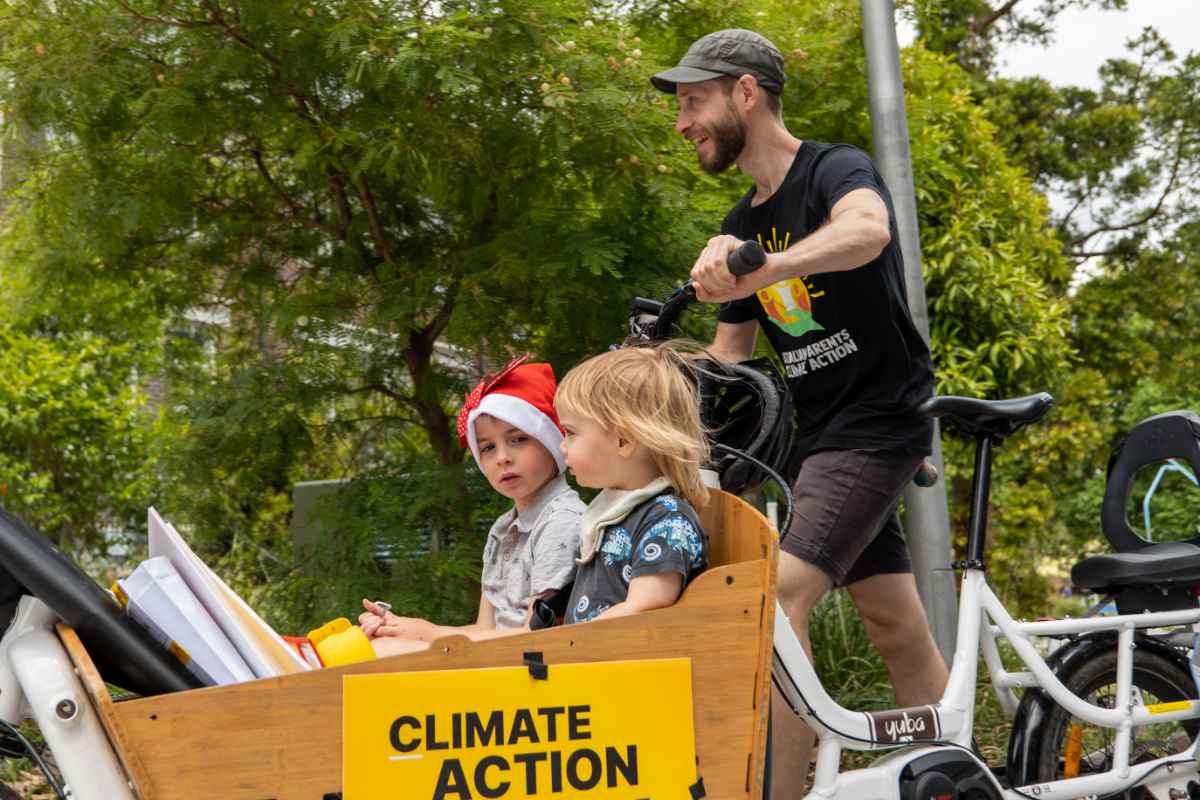
It’s a clear moral line: Are we doing what it takes to look after young people or are we failing them? Right now, we’re clearly failing. Australia’s current federal government has already approved four new fossil fuel projects this term, none of which are justifiable on climate grounds or mitigated effectively, all of which are treated as just a little bit more. These are major projects. Without that duty of care, we’re drawing down on young people’s futures. We’re selling the options young people have in the future and at a profit such that they won’t be able to rectify things in the future. That’s unacceptable.
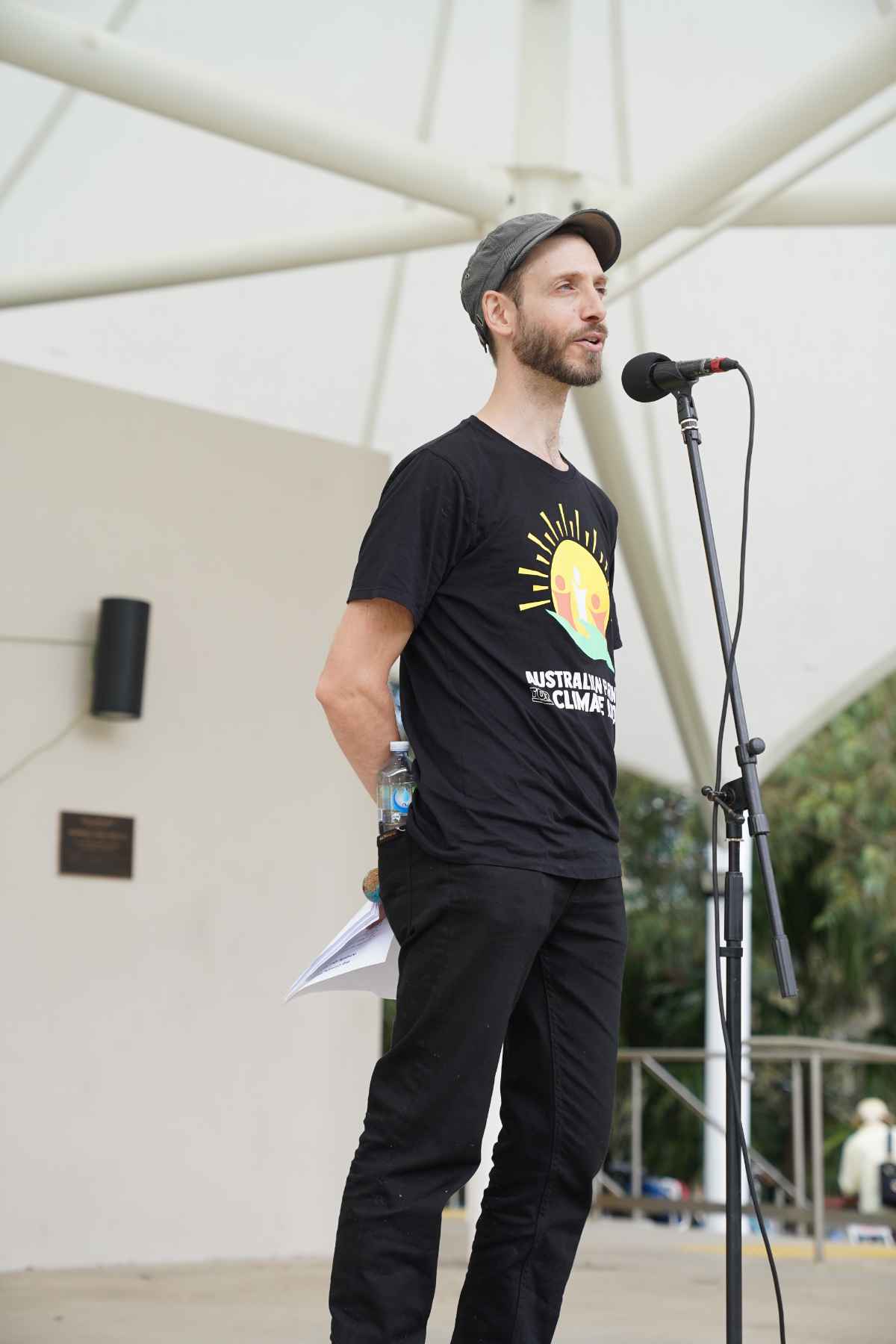
We use a relationship-building approach in our organising. We’re not a well-funded lobby group – we’re time poor parents. When we go to Parliament, we’ve got prams. There are over 25 local groups active in our grassroots network and we regularly reach parents who’ve never worked with climate organisations before. We’ve engaged thousands of people for our Solar Our Schools campaign which aims to turn schools and early childhood centers into renewable energy superheroes. In 2022, we got New South Wales to agree to open all 2,200 state schools to solar and battery installation.
That win wasn’t from staff working overtime, but from parents who saw our campaign, saw other parents engaging politicians, and decided, “I’ll talk to my candidate, too.” Parents spoke with hundreds of candidates, and in the last federal election, 135 candidates pledged to support solar energy for schools and childcare centers. We even got implementation in two states run by coalition or center-right governments, showing this can be a bipartisan solution. That’s a huge win for us.
It’s important to offer solutions so people can say “I stand for” something. We also try to speak to people’s values. Instead of saying, “Coal is evil” in a regional town of coal workers, we need to say, “Coal has developed a tradition of energy workers who are part of the solution. You have the infrastructure that will connect the poles and wires to the renewable energy projects we need. You’re in the epicenter of our future economic boom.”
Parents face unique barriers to advocacy, the biggest being lack of time. Not knowing other advocates can be a significant obstacle, too. We accommodate family’s schedules—we avoid scheduling meetings at bedtimes – and organise events such as clothing and toy swaps where you leave with information, relationships, and stuff your kids need. We also plan meetups and park playgroups at convenient weekend times so parents can easily meet other friendly parents who care about the same issues.
Part of what’s made our group more sustainable is that we don’t expect parents to always be on. We say, “If you can make it, great. But if life’s getting intense or your kid’s going through a rough stage, step back. We’ll welcome you back when you have capacity again.”
I’m endlessly impressed with the accomplishments of this skilled movement of parents. One mum from Sydney recently showed off her electric vehicle holiday on a major TV program, towing a trailer from campsite to campsite through Australia. That’s inspiring stuff. That one mum felt confident after her media training with us and now she’s inspiring thousands to say, “I never knew an electric vehicle camping holiday was possible. I want one too!”
I’ve never known such an engaged community. And we’re just getting started.
